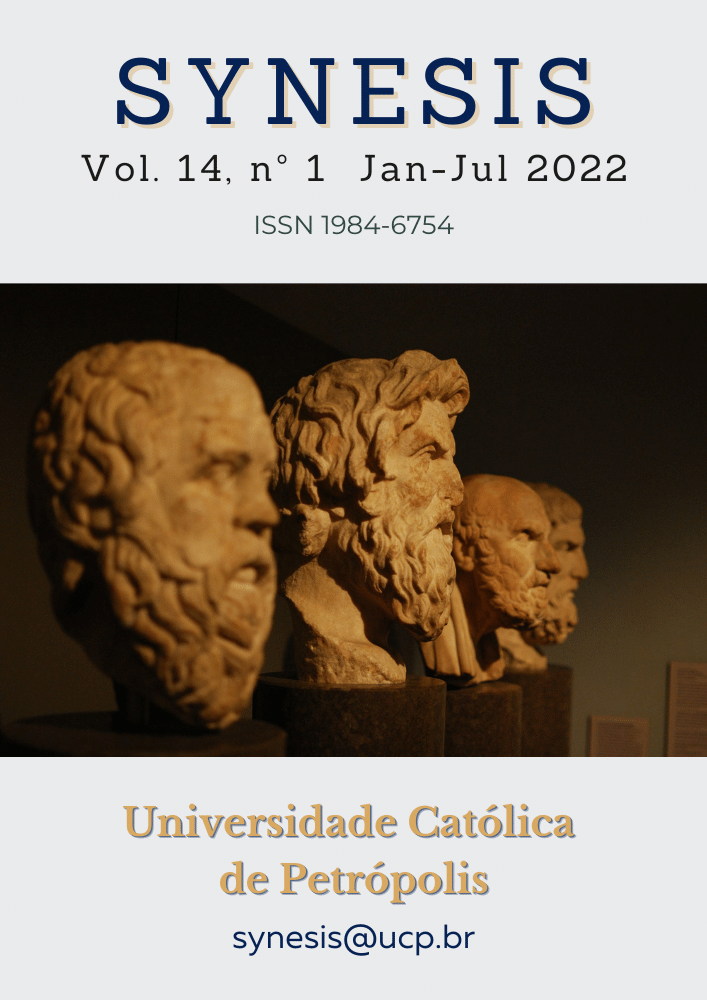Resumo
A separação de poderes é uma das ideias com profundo significado teórico e prático, especialmente no campo da ciência política. O nascimento da teoria da separação de poderes marcou a transição do uso bárbaro do poder nas sociedades autoritárias para o exercício do poder civilizado nas sociedades democráticas. Assim, a separação de poderes é considerada uma necessidade objectiva nos Estados democráticos, uma condição para assegurar a promoção dos valores liberais, e um critério para avaliar a existência e o desenvolvimento do Estado de direito, onde a soberania dos povos desempenha um papel primordial. No caminho para o aperfeiçoamento do pensamento político, a teoria da separação de poderes desenvolveu-se num sistema completo na filosofia principal de John Locke. No âmbito do artigo, o autor concentra-se na análise da ideologia de Locke da separação de poderes em termos da natureza da separação de poderes, da base e de alguns princípios de divisão de poderes, e dos papéis das diferentes partes do poder governamental e da relação entre eles.
Referências
BARNETT, H. Constitutional & Administrative Law. 12th ed. London: Routledge, 2017. 849 p. 9781315458373. https://doi.org/10.4324/9781315458373.
BERTRAM, C. Jean Jacques Rousseau. Stanford Encyclopedia of Philosophy, May 26th, 2017. Disponível em: https://plato.stanford.edu/entries/rousseau/. Acesso em: Jan 18th, 2022.
BOK, H. Baron de Montesquieu, Charles-Louis de Secondat. Stanford Encyclopedia of Philosophy, Apr 2nd, 2014. Disponível em: https://plato.stanford.edu/entries/montesquieu/#1. Acesso em: Jan 18th, 2022.
BOOKMAN, J. T. A Reader’s Companion to The Prince, Leviathan, and the Second Treatise. 1st ed. Cham: Palgrave Macmillan, 2019. IX, 224 p. 978-3-030-02880-0. https://doi.org/10.1007/978-3-030-02880-0.
CAHN, S. M.; FORCEHIMES, A. T.; TALISSE, R. B. The Democracy Reader: From Classical to Contemporary Philosophy. Rowman & Littlefield, 2021. 472 p. 978-1-5381-5756-5. https://rowman.com/ISBN/9781538157558/The-Democracy-Reader-From-Classical-to-Contemporary-Philosophy
ERVIN, S. J. Separation of Powers: Judicial Independence. Law and Contemporary Problems, 35, n. 1, p. 108-127, 1970. https://doi.org/10.2307/1191032.
FAIRLIE, J. A. The Separation of Powers. Michigan Law Review, 21, n. 4, p. 393-436, 1923. https://doi.org/10.2307/1277683.
FARR, J. Locke’s Ideas, Rousseau’s Principles, and the General Will. In: WILLIAMS, D. L. e FARR, J. (Ed.). The General Will: The Evolution of a Concept. Cambridge: Cambridge University Press, 2015. p. 88-114. https://doi.org/10.1017/CBO9781107297982.005.
FATOVIC, C. CONSTITUTIONALISM AND CONTINGENCY: LOCKE'S THEORY OF PREROGATIVE. History of Political Thought, 25, n. 2, p. 276-297, 2004. http://www.jstor.org/stable/26220164
FINLAY, C. J. Self‐Defence and the Right to Resist. International Journal of Philosophical Studies, 16, n. 1, p. 85-100, 2008/02/01 2008. https://doi.org/10.1080/09672550701819577.
FRIEDRICH, C. J. Authority and Discretion. In: FRIEDRICH, C. J. (Ed.). Tradition and Authority. London: Macmillan Education UK, 1972. p. 66-75. https://doi.org/10.1007/978-1-349-01046-2_6.
GENCER, B. Sovereignty and the Separation of Powers in John Locke. The European Legacy, 15, n. 3, p. 323-339, 2010. https://doi.org/10.1080/10848771003783611.
HANCEY, J. O. John Locke and the Law of Nature. Political Theory, 4, n. 4, p. 439-454, 1976. http://www.jstor.org/stable/191130
HOANG, C. B. “Separation of powers” is not the model of choice for the State of Vietnam. National Defense Journal (Vietnam), Sep 22nd, 2017. Disponível em: http://tapchiqptd.vn/en/research-and-discussion/separation-of-powers-is-not-the-model-of-choice-for-the-state-of-vietnam/10603.html. Acesso em: Feb 8th, 2022.
HUSSAIN, W. The Common Good. Stanford Encyclopedia of Philosophy, Feb 26th, 2018. Disponível em: https://plato.stanford.edu/entries/common-good/. Acesso em: Jan 21st, 2022.
JENKINS, D. THE LOCKEAN CONSTITUTION: SEPARATION OF POWERS AND THE LIMITS OF PREROGATIVE. McGill Law Journal ~ Revue de droit de McGill, 56, n. 3, p. 543-589, 2011. https://lawjournal.mcgill.ca/article/the-lockean-constitution-separation-of-powers-and-the-limits-of-prerogative/
LANGSTON, T. S.; LIND, M. E. John Locke & the Limits of Presidential Prerogative. Polity, 24, n. 1, p. 49-68, 1991. https://doi.org/10.2307/3234984.
LOCKE, J. Second treatise of government. Indianapolis, Cambridge: Hackett Publishing Company, 2010. 148 p. 978-0-915144-86-0. https://www.hackettpublishing.com/second-treatise-of-government
LOCKE, J. The second treatise of civil government. Broadview Press, 2015. 160 p. 9781554811564. https://broadviewpress.com/product/the-second-treatise-of-civil-government/#tab-description
LOCKE, J. 19. The Second Treatise of Government. In: BLAUG, R. e SCHWARZMANTEL, J. (Ed.). Democracy: A Reader: Columbia University Press, 2016a. p. 120-123. https://doi.org/10.7312/blau17412-025.
LOCKE, J. Second treatise of government and a letter concerning toleration. Oxford: Oxford University Press, 2016b. 256 p. 9780198732440.
MATTIE, S. Prerogative and the Rule of Law in John Locke and the Lincoln Presidency. The Review of Politics, 67, n. 1, p. 77-112, 2005. https://doi.org/10.1017/S0034670500043333.
MILLS, A. J.; DUREPOS, G.; WIEBE, E. (ed.). Encyclopedia of case study research. Sage Publications, 2009. https://doi.org/10.4135/9781412957397.
POOLE, T. M. Locke on the Federative LSE Legal Studies Working Paper, n. 22/2017, p. 1-14, 2017. https://doi.org/10.2139/ssrn.3086173.
RATNAPALA, S. John Locke's Doctrine of the Separation of Powers: A Re-Evaluation. The American Journal of Jurisprudence, 38, n. 1, p. 189-220, 1993. https://doi.org/10.1093/ajj/38.1.189.
SALZBERGER, E.; VOIGT, S. Separation of powers: new perspectives and empirical findings—introduction. Constitutional Political Economy, 20, n. 3, p. 197-201, 2009. https://doi.org/10.1007/s10602-009-9076-6.
TUCKER, P. 8. Independent Agencies and Our Political Values and Beliefs (1). In: Unelected Power: The Quest for Legitimacy in Central Banking and the Regulatory State: Princeton University Press, 2019. p. 173-194. https://doi.org/10.1515/9780691196985-010.
TUCKNESS, A. Locke’s Political Philosophy. Stanford Encyclopedia of Philosophy, Oct 6th, 2020. Disponível em: https://plato.stanford.edu/entries/locke-political/. Acesso em: Feb 7th, 2022.
TUNICK, M. John Locke and the Right to Bear Arms. History of Political Thought, 35, n. 1, p. 50-69, 2014. https://www.jstor.org/stable/26227264
UZGALIS, W. John Locke. Stanford Encyclopedia of Philosophy, May 1st, 2018. Disponível em: https://plato.stanford.edu/entries/locke/. Acesso em: Jan 18th, 2022.
WALDRON, J. Separation of powers in thought and practice. Boston College Law Review, 54, n. 2, p. 433-468, 2013. https://lawdigitalcommons.bc.edu/bclr/vol54/iss2/2
WEST, T. G. THE GROUND OF LOCKE'S LAW OF NATURE. Social Philosophy and Policy, 29, n. 2, p. 1-50, 2012. https://doi.org/10.1017/S0265052511000392.
WHITE, S. A. Cicero, Marcus Tullius (106–43 BC). Routledge Encyclopedia of Philosophy. Disponível em: https://doi.org/10.4324/9780415249126-A031-1. Acesso em: Feb 9th, 2022.

Este trabalho está licenciado sob uma licença Creative Commons Attribution-NonCommercial-NoDerivatives 4.0 International License.
Copyright (c) 2022 Synesis (ISSN 1984-6754)
